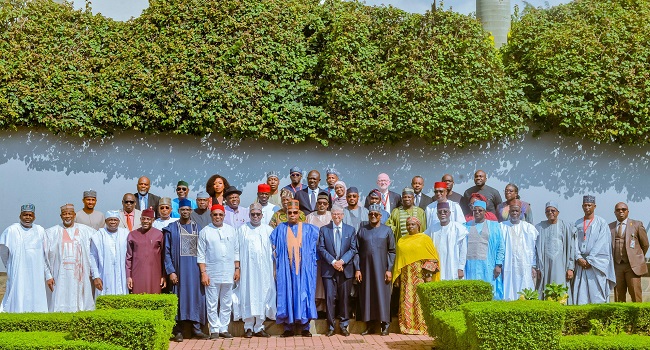Bill Gates, an American billionaire and philanthropist, believes Nigeria’s economy has stagnated, and the country’s debt has risen above 50% of its GDP for the first time since 2001 earlier this year.
He stated that while the revenue-to-GDP ratio has increased, it remains lower than it was 15 years ago.
As a result, he claims, Nigeria spends less per person than other African countries with a fraction of its resources.
“Nigeria’s economy has stagnated. Earlier this year, your debt exceeded 50% of your GDP for the first time since 2001.
“And while your revenue-to-GDP ratio has grown, it’s still lower than what it was 15 years ago. The result is that Nigeria spends less per-capita on its people than other African countries with a fraction of your wealth,” he said.
Gates, who attended the National Economic Council meeting at the State House in Abuja on Wednesday, noted that after the unification of exchange rate, the next great hurdle for Nigeria’s economic leaders is raising revenue.

While acknowledging that paying of taxes are never popular anywhere in the world, Gates maintained that they are social compact needed to drive the economy.
According to him, Nigerians are more likely to pay taxes when they see the government spending that money to give them a better life.
“Taxes are never popular. That’s true in America too. But they’re part of a social compact. People are more likely to pay them when they see the government spending that money to give Nigerians a better life.
“That’s what I want to speak about today. Because there are so many Nigerian leaders committed to investing in your people. And so many promising solutions in the pipeline,” Gates said.
He also emphasised the need to for the Nigerian government to invest in the health sector “because without health, there can be no opportunity.”
He added, “In just two decades, the world reduced the number of children who die before their 5th birthday by half. That’s largely thanks to investments in primary health care, like routine immunization. But in Nigeria today, 2.2 million kids have never gotten a single vaccine. I think you’ll agree that if children aren’t immunized against deadly diseases, little else matters.
“Primary care is the first—and sometimes, the only—point of contact most patients have with the health system. Yet Nigeria spends just 3,000 naira on primary health care per person, per year. 70% of your spending goes to secondary and tertiary care, compared to just 30% for primary care.”
The Co-Chair of Bill & Melinda Gates Foundation also advised the Nigerian government to invest in nutrition.
According to him, “Malnutrition is the root cause of nearly half of all child deaths. When children are malnourished, they’re more vulnerable to deadly diseases. Even the children who survive malnutrition never escape it.
“It stunts their brains and bodies in ways that can’t be reversed. And new data show that nearly one-third of Nigerian children suffer from stunting.”
Amid all the negative effects of malnutrition, Gates noted that there is still reason to be optimistic.
“Nigeria already mandates that staple ingredients like cooking oil and wheat flour are fortified with essential nutrients. And researchers are now working on fortifying bouillon cubes too.
“If scaled up, these bouillon cubes could save 11,000 lives and prevent over 16 million cases of anemia each year.”
Gates also noted how his bond with Nigeria has grown over the years, with his foundation investing over $2.8 billion in the country, which is its largest commitment in Africa.
“I’ve been coming to Nigeria for over two decades now. In that time, I’ve seen performances by Afrobeats legends. I’ve formed friendships with leaders across sectors. And I’ve met with innovators who are changing the world.
“I’m also proud to support their work. To date, our foundation has invested over $2.8 billion in Nigeria. It’s our largest commitment in all of Africa,” he stated.



